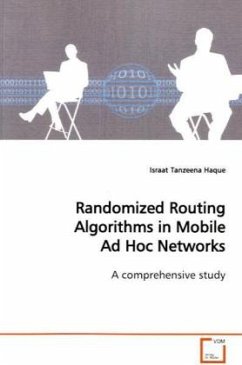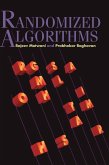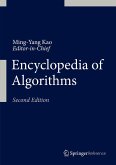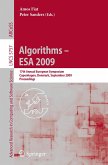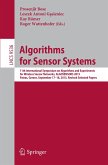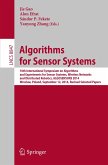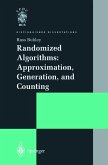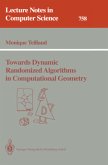In this book, the problem of finding a path from a
source to a destination node in a mesh of mobile
wireless nodes is considered. One class of solutions
to this problem is based on the position-based
routing paradigm, whereby the forwarding nodes rely
solely on the knowledge of their geographical
location (which can be established, e.g., via GPS),
the location of their neighbors, and the location of
the destination. This book proposes several new
randomized position-based algorithms for routing in
mobile ad-hoc networks. The proposed algorithms
incorporate two heuristics: greedy aimed at
minimizing the remaining distance of the packet to
the destination, and compass striving to minimize the
packet s deviation from the direction towards the
destination. Additionally, the routing decisions are
randomized for improved flexibility and reliability
communication. Experimental results obtained for
various network topologies show that the delivery
rates of our randomized algorithms are significantly
better than those attained by the deterministic
variants of the same heuristics.
source to a destination node in a mesh of mobile
wireless nodes is considered. One class of solutions
to this problem is based on the position-based
routing paradigm, whereby the forwarding nodes rely
solely on the knowledge of their geographical
location (which can be established, e.g., via GPS),
the location of their neighbors, and the location of
the destination. This book proposes several new
randomized position-based algorithms for routing in
mobile ad-hoc networks. The proposed algorithms
incorporate two heuristics: greedy aimed at
minimizing the remaining distance of the packet to
the destination, and compass striving to minimize the
packet s deviation from the direction towards the
destination. Additionally, the routing decisions are
randomized for improved flexibility and reliability
communication. Experimental results obtained for
various network topologies show that the delivery
rates of our randomized algorithms are significantly
better than those attained by the deterministic
variants of the same heuristics.

